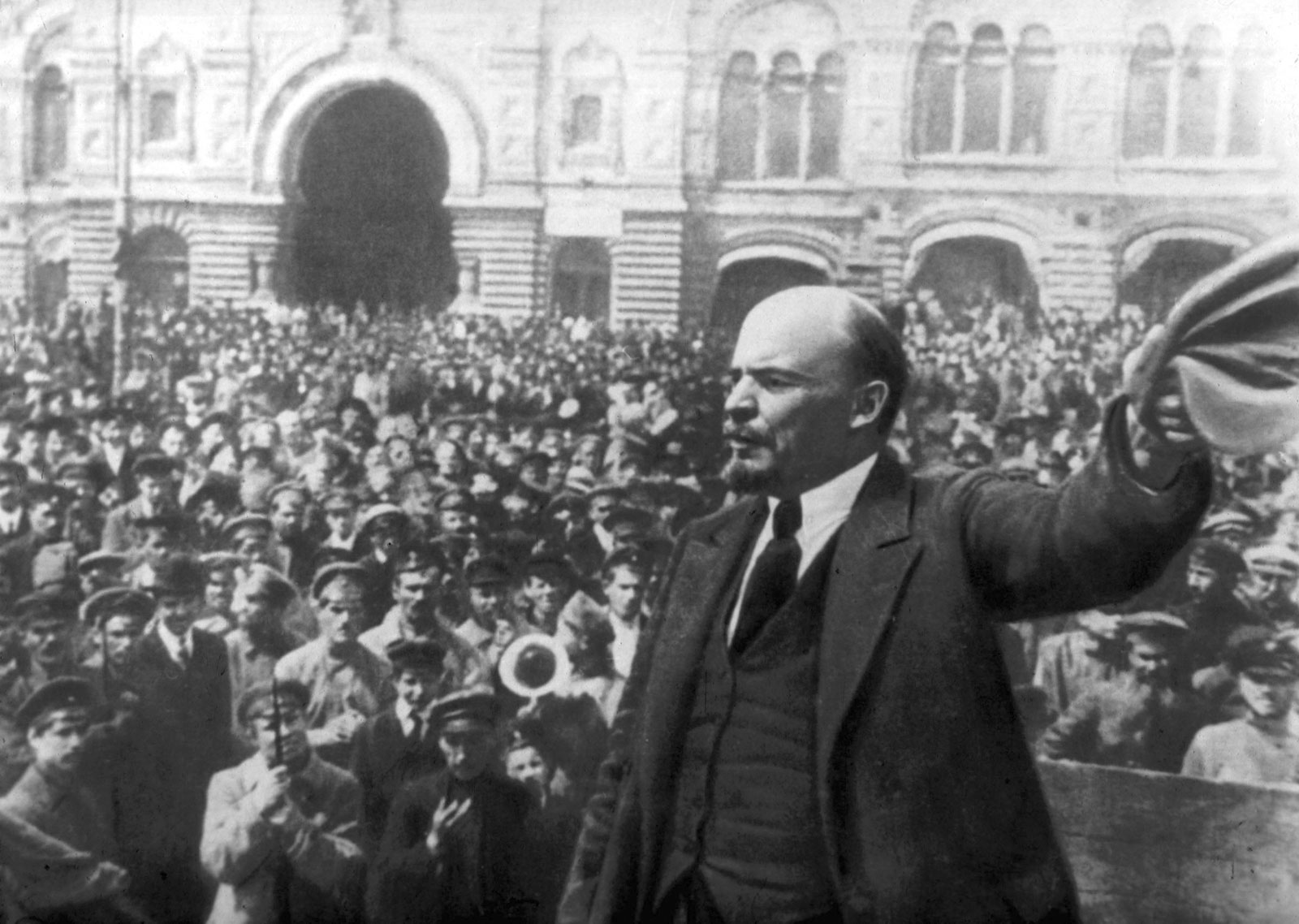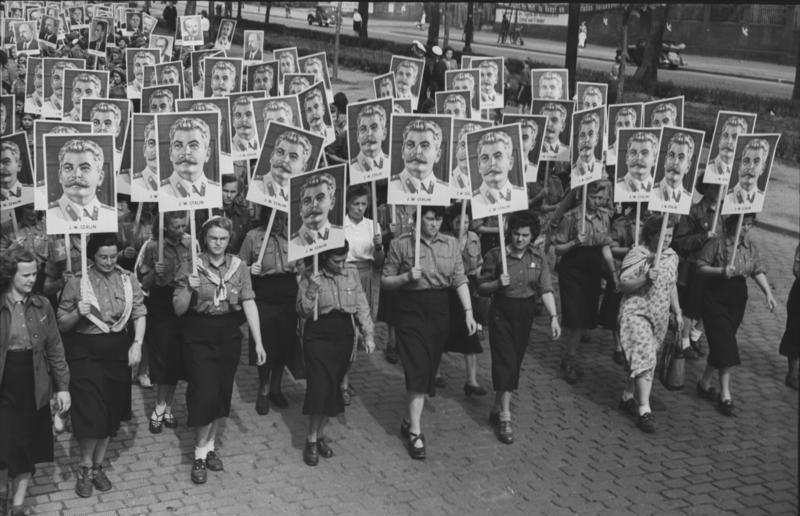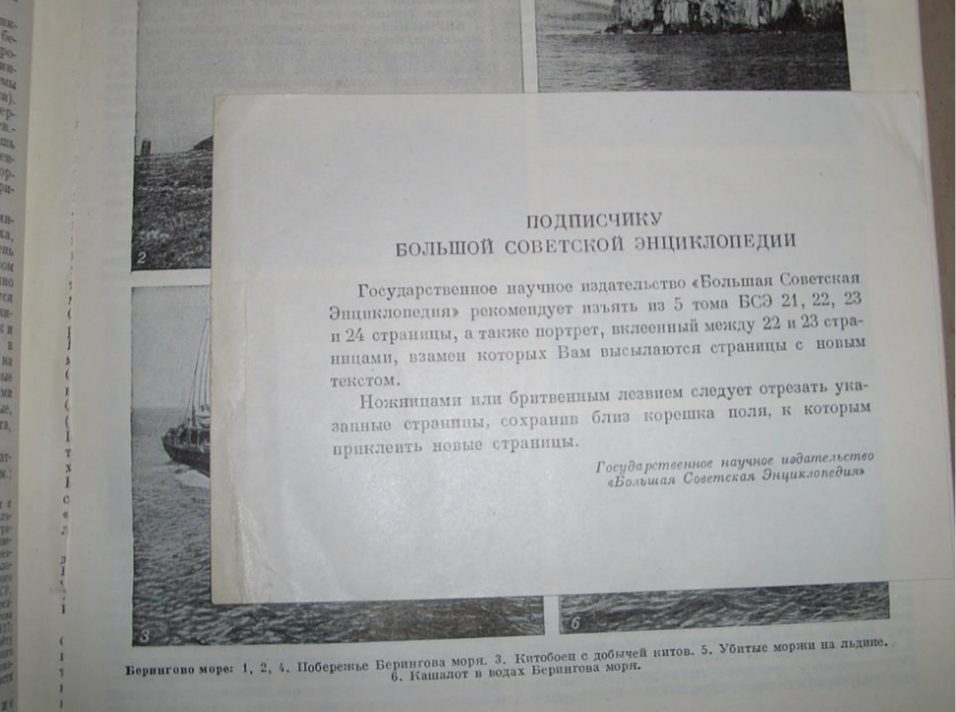The Falsification of Memory: History as a Tool of Communist Propaganda
History, as a discipline dedicated to studying the past, was far from objective in the Soviet Union. Rather, it was a heavily politicised instrument of propaganda, the sole purpose of which was to perpetuate the rule of the Soviet regime. The result, historian Anna Cichocka writes, was a web of lies on a mass scale.
As soon as the Bolsheviks came to power in Russia in 1917, history, as a science of the past, was destroyed. It became a political tool totally controlled by the communist authorities and an instrument of communist propaganda. History was completely subordinated to Marxist-Leninist ideology, and it was the Communist Party that always decided which interpretation of that ideology was correct. This made it possible to constantly manipulate and rewrite history according to the ever-changing needs and political sensitivities of the Soviet regime at a given point in time. The result was lies and manipulation on a mass scale.

Marxist-Leninist ideology stipulated that the driving force of history was class struggle consisting of a ceaseless march towards the inevitable, global victory of communism. The thesis of inevitability legitimized the first communist state, the creation of which was presented as a turning point in the history of mankind. It also served to justify the criminal policies of the Bolsheviks in Russia and the territories they conquered . The coup d’état, by which the Bolsheviks effectively overthrew the newly-formed Russian Republic which had been born out of the ashes of the Tsarist regime’, was presented as the "Great October Socialist Revolution" of the working masses against the exploiters.
Rewriting History in Soviet Russia
The Bolsheviks fabricated their own version of both national and global history. They selected from it only what would justify the continuity of the unidirectional historical process. Events and figures that had (in the Bolsheviks' interpretation) a revolutionary character and resulted in "progress" at different stages of history were positively portrayed: from the Gladiator War to the French Revolution, from Spartacus to the 19th century precursors of communism.
From the Russian tradition, those who fought against the tsarist autocracy, such as the Decembrists or Alexander Herzen, were chosen. Essentially, in Soviet propaganda, the USSR was the embodiment of progress, meaning everything that served its interests was progressive, and everything that opposed it was reactionary.
These guidelines were followed by the elimination of ‘incorrect’ content, from historical publications to textbooks. New street patrons appeared. As part of Lenin's plan of monumental propaganda, monuments to pre-revolutionary heroes were demolished and replaced with new ones commemorating events associated with the "revolution". These were often caricatured, hastily erected mock-ups that were easy to dismantle if the new heroes were knocked off their pedestal. This was, more broadly, symbolic of Bolshevik historical policy.
The calendar of public holidays was changed to highlight events associated with the Bolshevik coup. History as a subject disappeared from schools for some time. This scheme was later copied in other communist countries, including countries enslaved by the USSR.
The history of the Communist Party itself was also manipulated. After Lenin's death, Joseph Stalin eliminated his competitors and assumed total control of the Soviet state. Such opponents disappeared from the Party's history books. Propagandists and intimidated historians could barely keep up with the changes. From the 1930s onwards, it was Stalin who dictated the ‘correct’ version of the history of the All-Union Communist Party (Bolsheviks), no longer a 'Leninist' party, but a 'Leninist-Stalinist' one. As the cult of the personality grew in the USSR, Stalin's contribution to the Revolution was increasingly exaggerated.
Stalin was also glorified as the successor to the despots who built the strength of the Russian empire in the past: Ivan the Terrible, Peter the Great, and Catherine the Great. In the 1930s, a growing Russian nationalism emerged in Soviet propaganda and culture. It turned out that tsars too could be "reactionary" or "progressive", as long as they served the power of the state and could exhibit the benefits of autocracy. Sources of national pride were sought in the history of pre-revolutionary Russia. The motif of a "strong

The "History of the All-Union Communist Party (Bolsheviks)" was published in 1938. It was supposed to, once and for all, end all disputes about the history of the Party, as well as other historical issues. Authorship of the anonymous work was, in time, attributed to Stalin, who appointed himself the most eminent historian.
This so-called "bible of Stalinism", full of lies and concealments, precisely defined the only ‘legitimate’ version of the past. It became the obligatory textbook for both citizens of the USSR and the countries it enslaved for the coming years. During this period, it received over 300 editions, was translated into over 60 languages, and had a circulation of over 40 million copies. "A Short Course" presented a simplified scheme of world development, which boiled down to a succession of formations: primitive society, slavery, feudalism, capitalism, and socialism. This was how history had to be described, even in those countries where such formations had never existed. It established the cult of Vladimir Lenin and his most faithful disciple Stalin as the brilliant and infallible leaders of the Communist Party, exaggerating Stalin's role in organising the Bolshevik Party, the October Revolution, and the soviet state.
At the same time, the actual leaders of the Revolution were either overlooked or described as traitors. From then on, historians were required to cite all these "discoveries". Facts based on documents were no longer relevant, and the archives came under the control of the political police anyhow. Any departure from the official interpretation risked repression. History was finally nationalized. The eminent philosopher Leszek Kołakowski called it "a perfect textbook of falsified memory", thanks to which "the party was to exercise power over minds and destroy both critical thinking and society's memory of its own past".
After the conclusion of the Molotov–Ribbentrop Pact with Nazi Germany in 1939, propaganda provided historical arguments to justify it. All anti-German content also disappeared from historical publications. Germany was presented as the cradle of Marxism, and comparisons of Hitler to Napoleon were banned.
The attack by the Third Reich on the
Orders referring to the glorious pages of the empire's military history were established, thus emphasising the continuity between Russia’s historical armed forces and the present-day Red Army. The role of the Orthodox faith in the history of the nation and the state was emphasised, which was the result of a tactical change in attitudes towards the Orthodox Church. The state generously funded historical films. Eisenstein's Alexander Nevsky, which had been taken off the screens after the Pact with Hitler for its "anti-German themes", was screened again. Stalin personally deleted Alexander's death scene from the script, saying: "Such a good prince cannot die!".
Soviet propaganda falsified the picture of the Second World War for many years. The Soviet invasion of Poland in 1939 was described as the "liberation of brotherly nations", and the 1940 annexation of the Baltic States as the "victory of the socialist revolution" and "historical justice". According to Soviet propaganda, the Second World War lasted from 1941 to 1945, omitting the inconvenient truth of the alliance with Hitler.
There was no mention of Soviet repressions in the territories occupied by the USSR, such as deportations of Estonians, Finns, Lithuanians, Latvians, Poles, Romanians, Ukrainians, Jews, and others, deep into the USSR, as well as the circumstances surrounding the Katyn Massacre of 1940, which was attributed to the Germans. The matter of Western wartime material aid to the USSR was also a forbidden topic.
After the victory in the Second World War, the Great Russian chauvinism and cult of Stalin the “brilliant” leader” reached its apogee and caricatured proportions. Soviet propaganda combined it with Marxism, resulting in a kind of hybrid. One manifestation of this phenomenon was the claim that all major inventions in the history of technology were the work of the Russians.
This thesis was reflected in the entries of the "Great Soviet Encyclopedia", first published in 1949. Denying these ‘truths’ was stigmatised as a sign of "cosmopolitanism" and the humiliation of oneself before the West. Anti-Semitism was also a characteristic of propaganda at the time, the consequence of which was the silencing of discussions around the Holocaust.

Historical lies were a tool of the power struggle
After Stalin's death in 1953, it became clear again that, as the first Russian Marxist historian Mikhail Pokrovsky said, "history is politics projected backward". In 1956, the 20th Congress of the Communist Party of the
He condemned Stalin for surrounding his person with a cult, as well as the repressions against party members (other victims of mass crimes were passed over in silence), the deportation of peoples, and the mistakes made during World War II, including trusting Hitler. From then on, victory in the Second World War was portrayed in propaganda as the result of the collective effort of the people and the army, and as a credit to the commanders, who were now brought back into favor.
This resulted in the publication of many memoirs of Red Army commanders, such as Ivan Konev and Georgy Zhukov. Khrushchev criticized "A Short Course", questioning the work’s portrayal of Stalin. He stressed the need for a new, facts-based Marxist textbook on Party history and a return to Leninist principles. This resulted in the rehabilitation of many Party activists expelled by Stalin.
By incriminating Stalin, Khrushchev whitewashed himself and other accomplices of the tyrant, absolving them of responsibility for the crimes in which they had participated. Historical lies were a tool in the struggle for power and guaranteed the continuation of the system. In this version, the despot was guilty, while the system itself was essentially right. Stalin's authority was only a temporary distortion of Communism, which was to get back on track under Khrushchev, who called himself Lenin's true successor.
The same mechanism was later used by the successive leaders of the
Khrushchev's successor, Leonid Brezhnev, also surrounded himself with a cult. Among other things, his role in the "Great Patriotic War" was exaggerated. The insignificant episode of the War in which he took part began to be widely described and praised in poetry and songs. Brezhnev suffered under the burden of orders. This was part of a broader policy of further mythologizing the 1941-1945 War and idealizing the Red Army in history, art, and public space. The memory of the War was an important element in the upbringing of the young generation during this period. Victory Day celebrations on May 9, which were restored in 1965, became the second most significant public holiday after the anniversary of the Revolution. From 1967, the gradual, partial rehabilitation of Stalin began.
Mikhail Gorbachev, the final leader of the USSR who came to power in 1985, essentially upheld many of the lies of Communist propaganda. He described the Bolshevik "revolution" as the free choice of the people. Promoting the slogan of "return to Leninism", he spoke of Stalin's bad character and his responsibility for the persecution of communists. He justified collectivization as necessary and repeatedly understated the number of its victims. He defended the
Lies were one core foundation of the communist system. Manipulation of history served to maintain the power of the ruling elites. It often took the form of completely primitive procedures. Symbolic is, for example, the "disappearance" of NKVD chief Nikolai Yezhov from a 1937 photograph with Stalin after he fell into Stalin's disfavour, or the cutting out of the "Great Soviet Encyclopedia" page containing the entry with the name and portrait of the head of the political police Lavrentiy Beria and its replacement with an entry entitled "The Bering Sea" after his execution in 1953.
The communist authorities also organized extensive cynical propaganda campaigns involving the entire state apparatus. For example, when in 1990 the
Anna Zofia Cichocka (1979) is a Member of the board of the Paweł Włodkowic Institute and a historian whose primary interests are the history of law, historical policy, memory conflicts, and history of Polish political emigration.